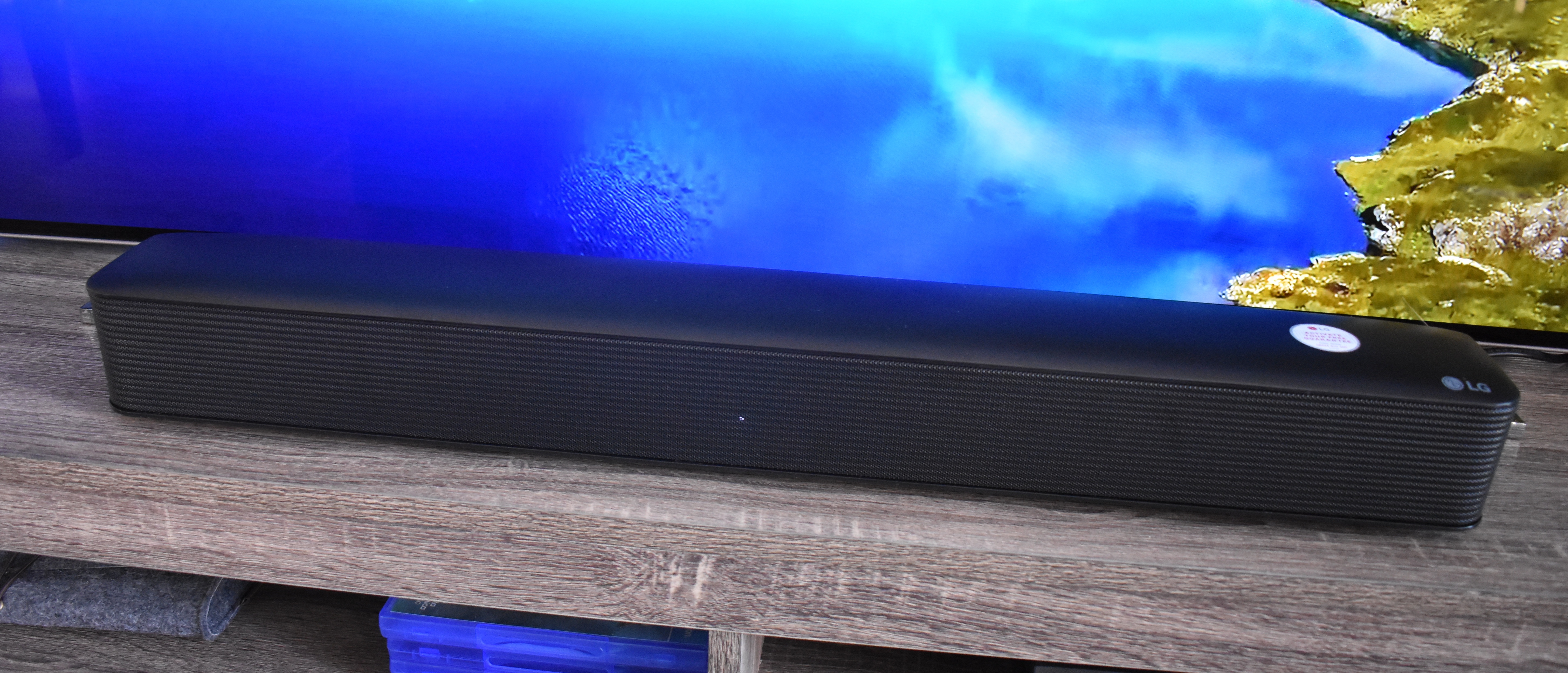Tom's Guide Verdict
There are better-sounding soundbars, but the LG SK1 is compact, easy to use and incredibly affordable, making it a good fit for smaller TVs.
Pros
- +
Very cheap
- +
Easy setup and usage
- +
Decent sound quality
Cons
- -
Limited connectivity
- -
Mild bass
- -
Only 40W
Why you can trust Tom's Guide
The LG SK1 is about as elemental as a soundbar can get. It’s a bar and it pumps out sound — there’s no extra subwoofer, no smart voice control, no multi-room functionality and certainly no 3D audio trickery like Dolby Atmos. The closest thing it has to a bonus extra is Bluetooth connectivity, and with just 40W of power on tap it’s unlikely to blast your sofa through a wall.
Speakers: 2 x full range drivers
Ports: 3.5mm aux in, optical in
Wi-Fi: N/A
Size: 3 x 25.5 x 7.5 inches
Weight: 4.4 pounds
Why, then, should you even consider it? For one thing, it’s cheap. And as the best cheap soundbars show, packing extra features into affordable AV hardware is tough, so the basic approach is at the very least forgivable. It’s also user-friendly and, despite some sonic weaknesses, could still be an upgrade on certain TV speakers. Read on for our full LG SK1 review.
- The best cheap TV deals this month
- Never run out of things to watch with the best streaming services
LG SK1 review: Price and availability
At $89, the LG SK1 costs chump change by the standards of most soundbars. LG itself is sold out at the time of writing, but you can pick one up from Best Buy or Micro Center now. B&H also lists the SK1 at a slightly lower $86, but is sold out as well.
There are no additional speaker bundles to consider with the SK1; no sold-separately subwoofers or satellite speakers. It’s a fully and truly standalone soundbar.
LG SK1 review: Design
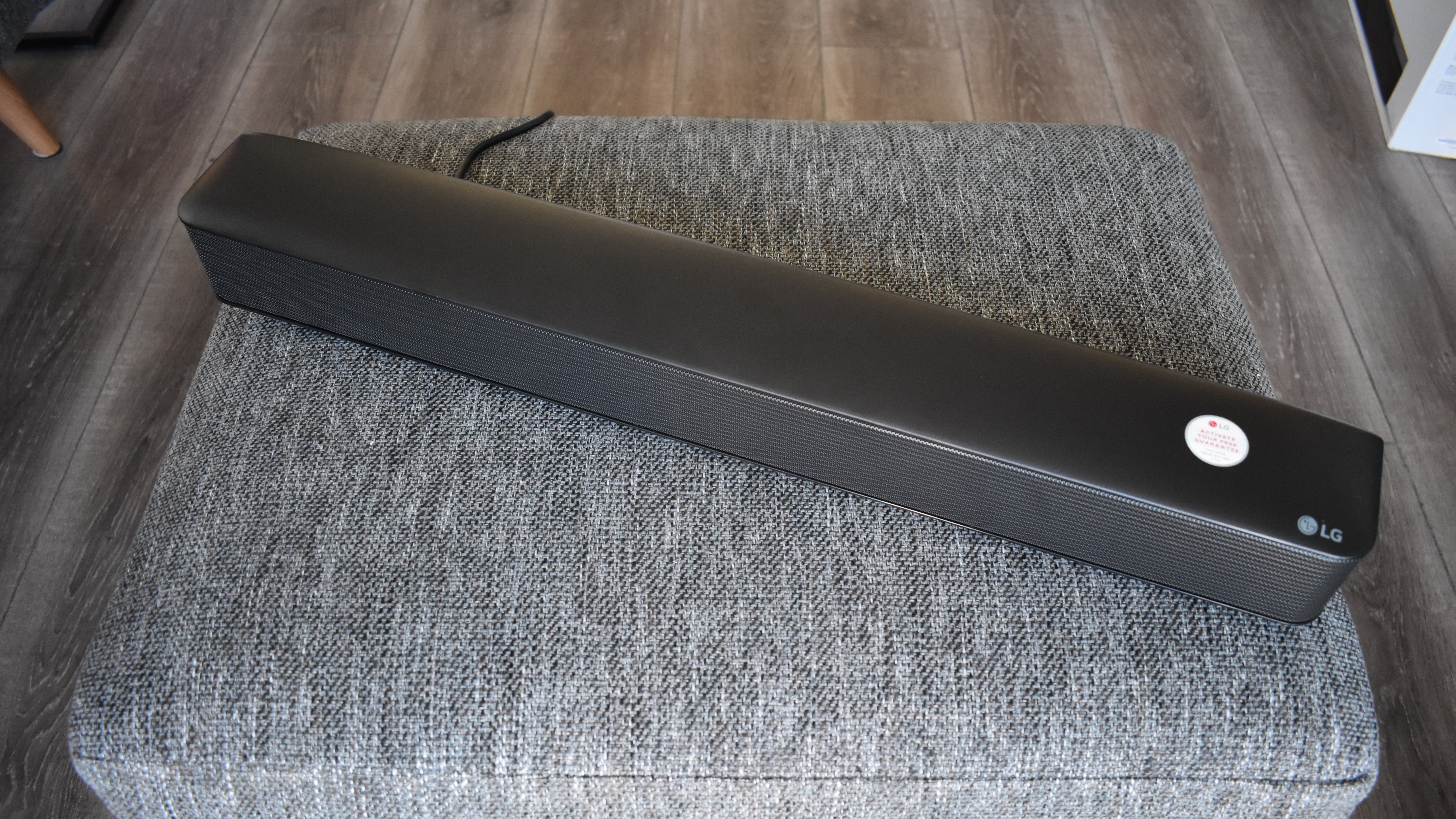
The SK1 can look tall in photos; in reality that’s just a matter of proportions, as at 25.6 inches wide this is a relatively compact soundbar. It’s light, too, which makes it easier to wall-mount. You’d need to provide your own screws for doing so, but that’s normal for cheap soundbars.
Like I said, this is a very basic soundbar in all regards. It’s all black with no integrated controls (you do get a remote), and even the display is simple: it’s just a pair of single LEDs. These flash different colors according to what kind of source connection is in use, though it’s not as helpful as a screen for conveying volume and playback mode information.
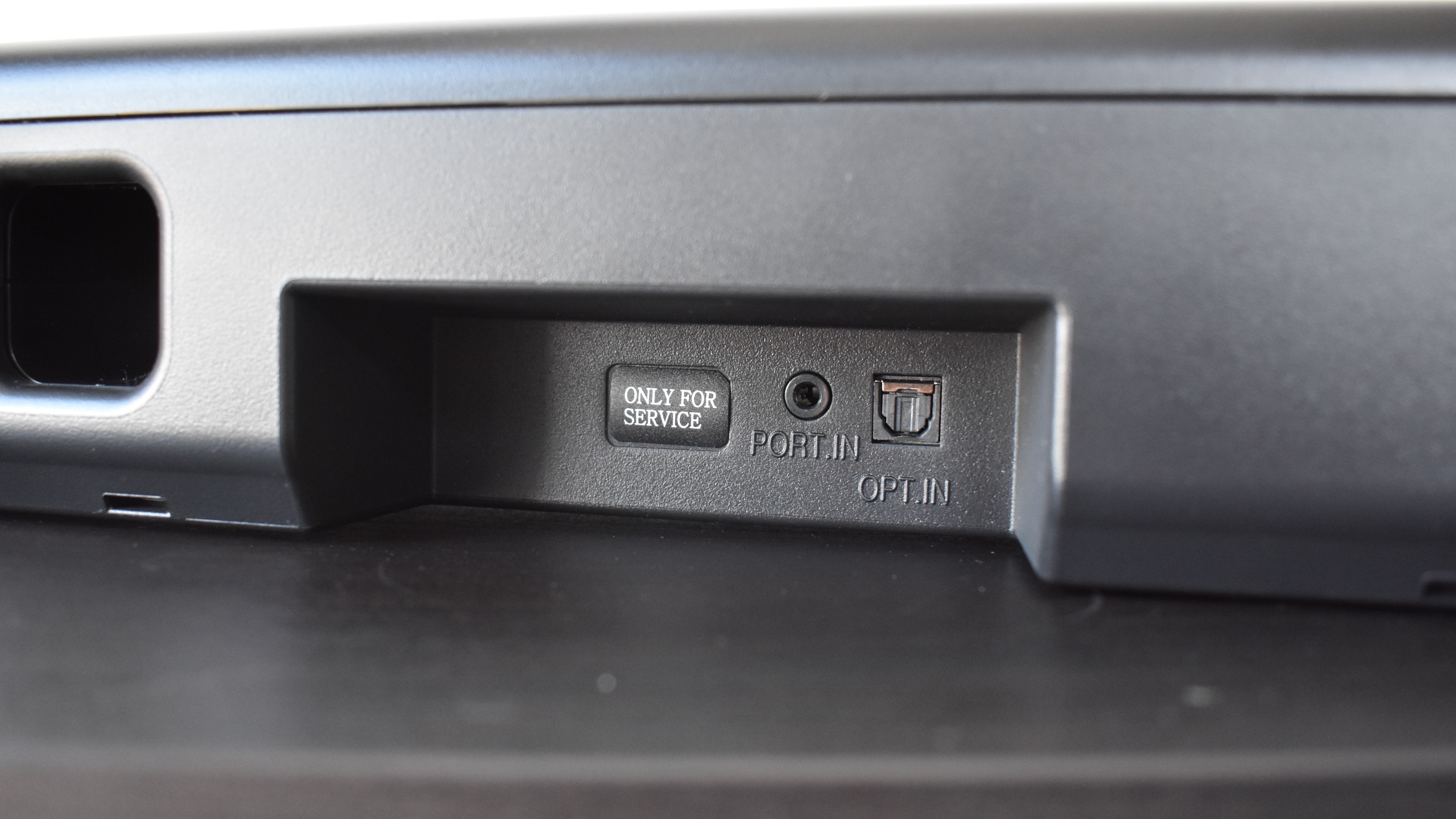
Similarly, there’s only the bare minimum of ports: just one optical and 3.5mm input apiece, with a USB port for service purposes. Again, there’s Bluetooth connectivity as well, but the SK1 is a thousand miles from the likes of HDMI eARC.
Despite the simplicity, though, build quality is good. The top and bottom panels are solid-feeling plastic, and the metal grille wraps around both front corners for a modern look. There’s an upside to those basic LEDs, too: they’re not as distracting as an LCD screen when you’re watching TV.
LG SK1 review: Setup
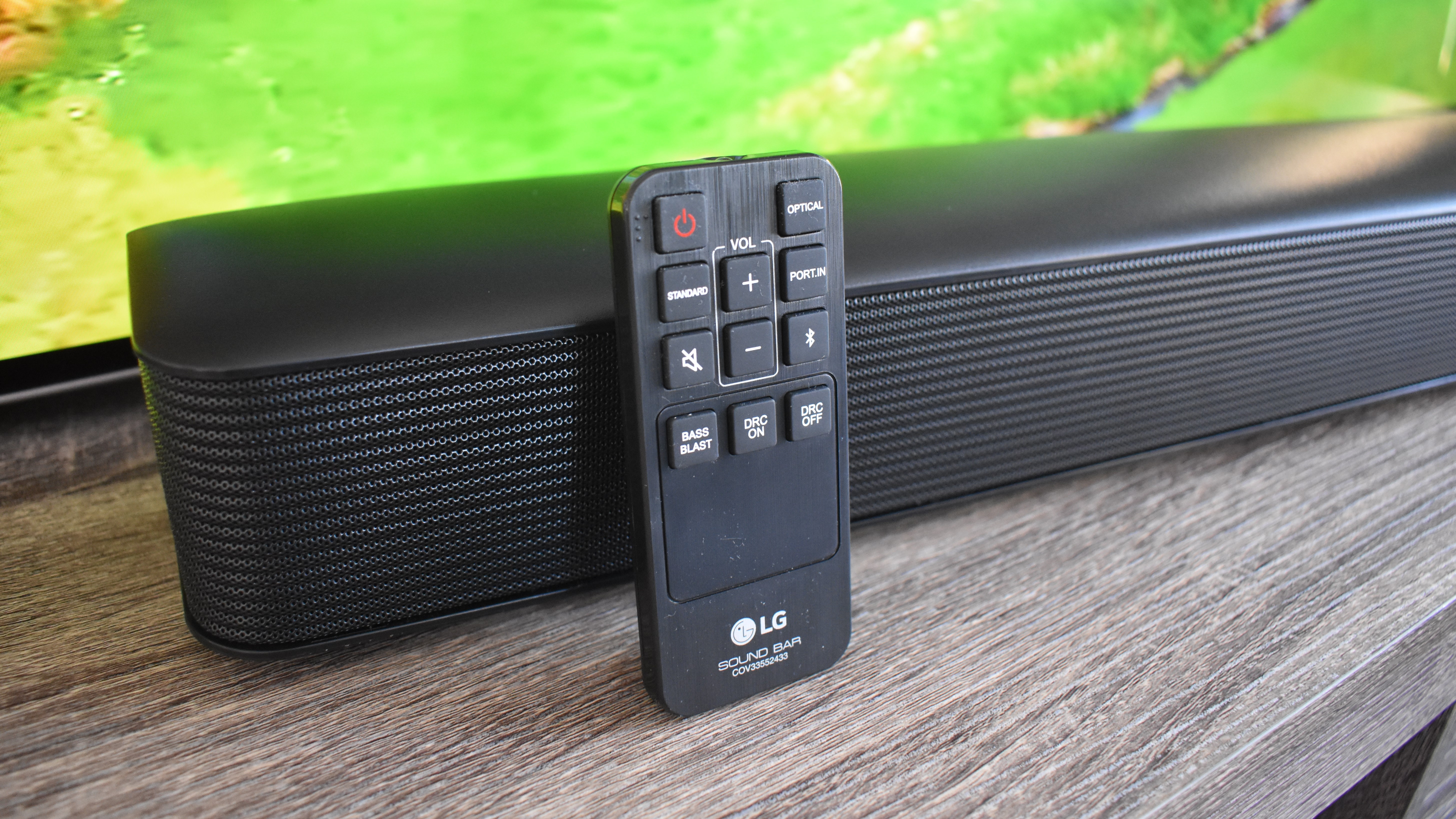
Setting up the SK1 for an optical connection is merely plug-and-play, and Bluetooth setup is essentially identical to that of the best Bluetooth speakers. It’s just a case of pressing the Bluetooth button on the remote to put the SK1 into pairing mode, then finding it on your phone or tablet’s Bluetooth menu. It’s all pleasantly easy.
The remote also includes dedicated buttons for switching between Bluetooth, optical and 3.5mm devices. This isn’t a particularly rare quality but it’s definitely preferable to only having a single “Source” button that slowly cycles between them.
The remote’s final tricks include the Bass Blast and Dynamic Range Control (DRC) switches, which respectively boost the low-end and compress the dynamic range in Dolby Digital-supporting content. The latter reduces the range between loud and quiet scenes, which proved useful for action films in which sections of dialog were suddenly interrupted by explosions and car crashes.
LG SK1 review: Sound quality
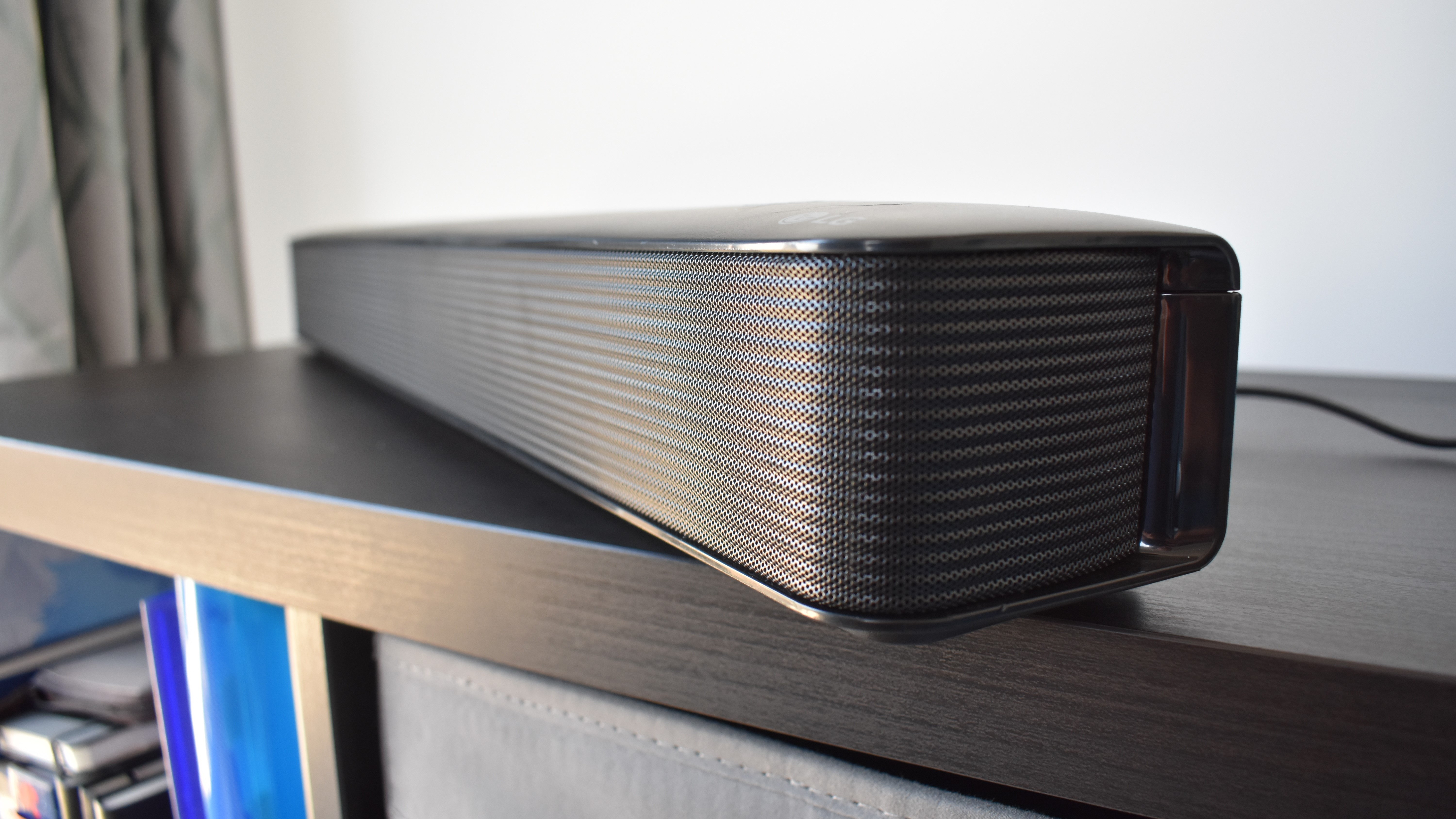
With only a pair of 20W drivers, the SK1 lacks the room-shaking volume of not just the best soundbars but a lot of more middling fare too. Bass presence is particularly lacking — the SK1 doesn’t sound tinny, like the lower-end TV speakers it aims to replace, but there’s very little rumble in big action scenes.
Still, activating Bass Blast helps fill out the sound, both for video and in music playback. And even with limited power, the SK1 can sound surprisingly dramatic. There’s good separation between different sound effects and music instruments, so it never sounds too muddy or uncontrolled, and the soundstage is wider than the narrow dimensions suggest.
If the SK1 has a more serious weakness, it’s dialog, which sounds a little hollow next to effects and music. Again, Bass Blast can assist, though here it also seems to rob speech of some of its usual clarity.
Interestingly, when playing music over Bluetooth, Bass Blast had less of an effect on vocals than it did on movie dialog over optical. As such I was happy to leave it on, so it could provide that extra low-end punch to songs. Some tenor-range vocalists did suffer some sibilance, however.
LG SK1 review: Verdict
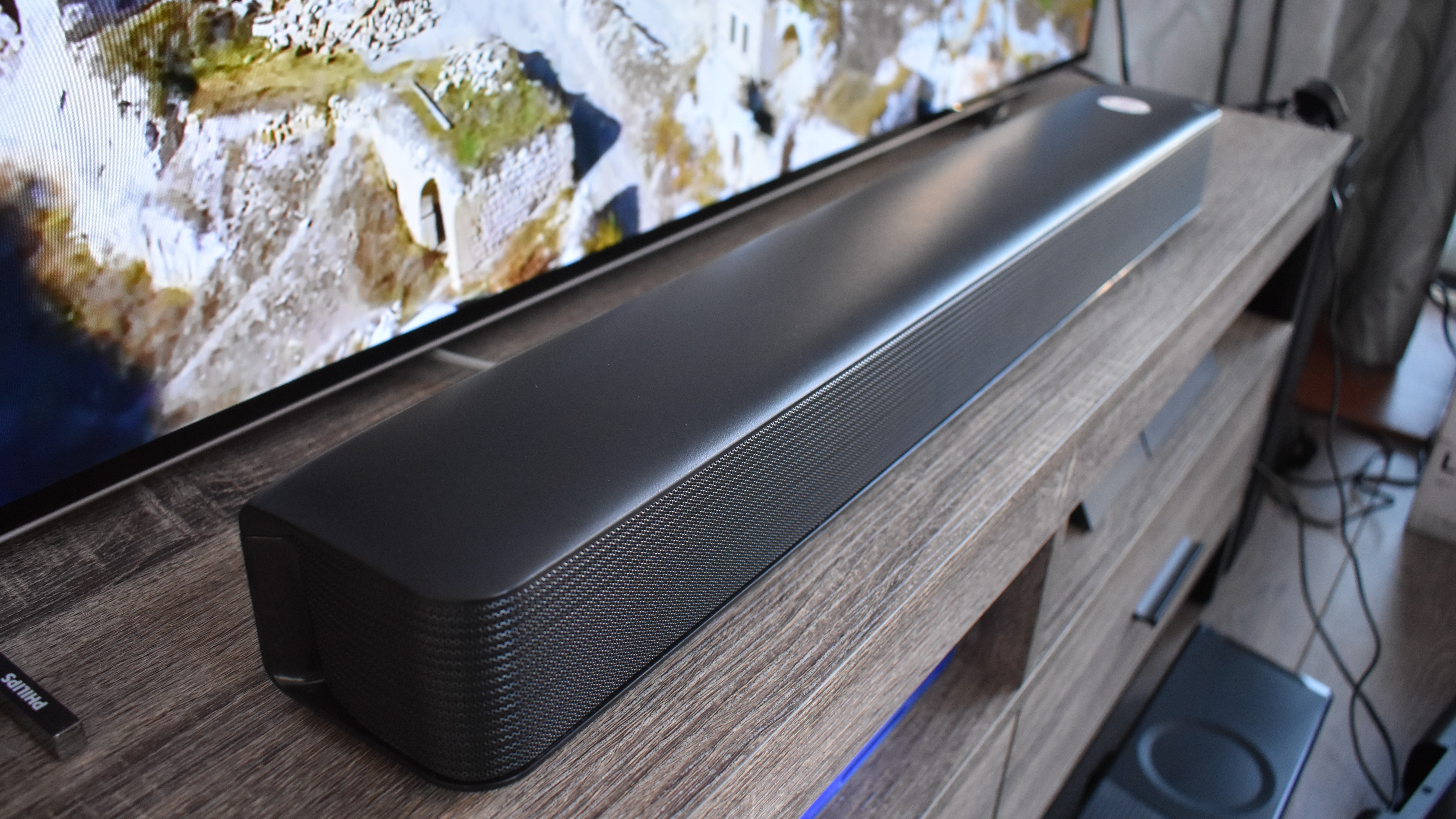
For similar money, I’d much sooner recommend the Creative Stage V2 for most home cinema setups; it sounds bigger and bassier than the SK1 while also producing clearer dialog. It has a wider range of connections and its own bundled subwoofer, too.
Even so, the SK1 has a certain straightforward charm that extends beyond the convenience of its rock-bottom price. At under 30 inches wide, it could be a particularly fitting addition to the kind of smaller TVs you might have in your bedroom or kitchen. These tend to have worse sound quality than the 50-inch-plus behemoths more likely to occupy a living room, so even with its limitations, the LG SK1 could still be a viable (and affordable) improvement.
- More: Check out the best cheap Bluetooth speakers
James is currently Hardware Editor at Rock Paper Shotgun, but before that was Audio Editor at Tom’s Guide, where he covered headphones, speakers, soundbars and anything else that intentionally makes noise. A PC enthusiast, he also wrote computing and gaming news for TG, usually relating to how hard it is to find graphics card stock.
